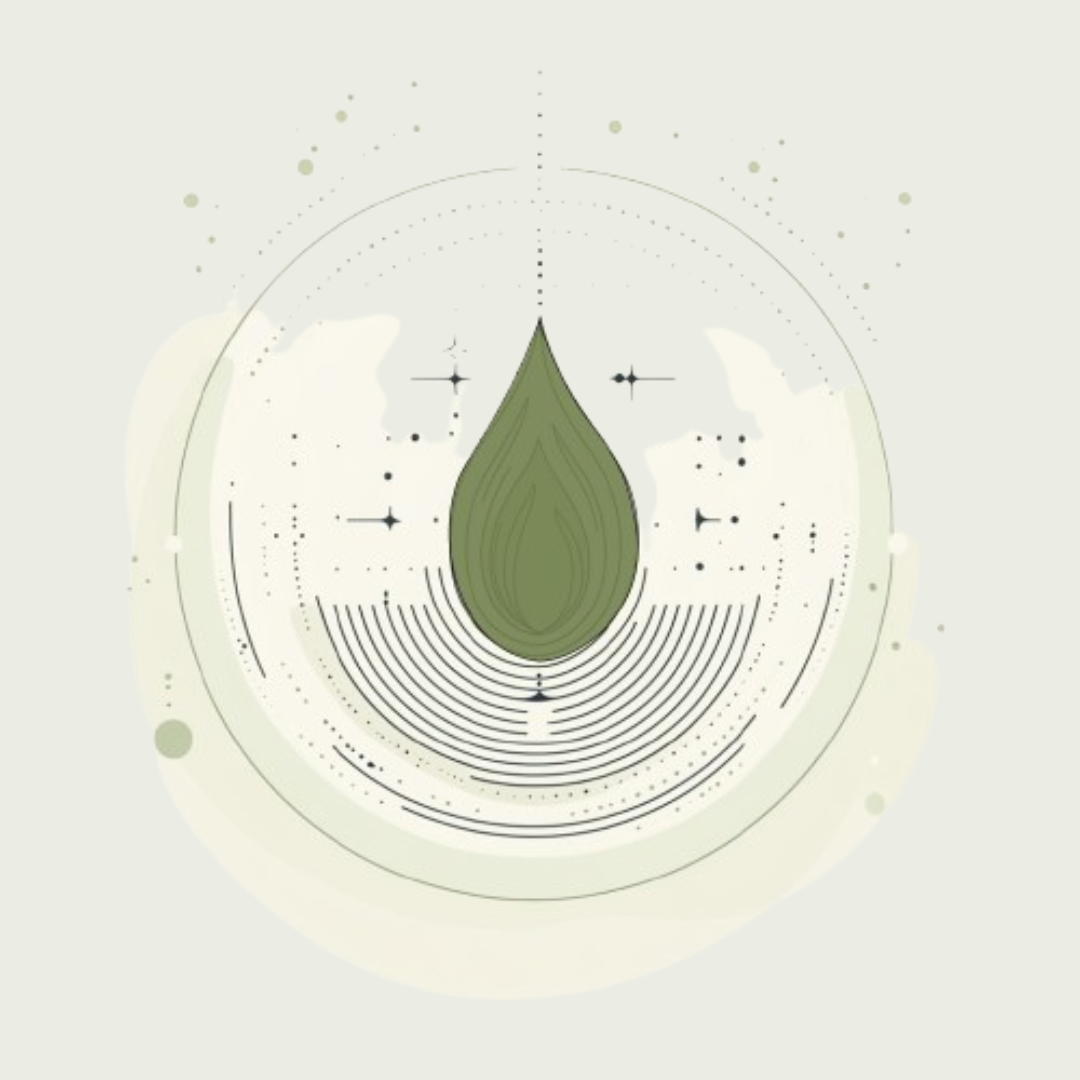Highlights
Summer's heat is at its peak, but soon the monsoon will arrive, turning the air cool and heavy with rain. The bright, sunny days will give way to the endless rains, and with them comes that heavy, sluggish feeling we all know too well. Ayurveda calls the monsoon season Varsha Ritu, and it’s considered the perfect time to go for a Panchakarma detox, a deep cleanse to flush out the toxins that build up in your body and bring back your energy.
When toxins pile up deep inside your tissues, they slow you down physically and mentally. And no, eating comfort food won't usually help; it just makes things worse.
Ayurveda offers gentle yet effective cleansing methods to help your body reset and get back to feeling strong, alert, and happy. While you wait for your detox, cutting down on heavy, complex foods can give your body the break it needs to heal and recharge.
In this blog, we’ll walk you through the signs that tell your body needs a detox and understand how Ayurvedic Panchakarma works.
Signs That Your Body Needs a Detox
Sometimes our bodies signal that they need a reset. If you’re feeling off in any way, here are some common signs that your body might be calling out for a detox:
1. You've Gained Weight and Can’t Seem to Lose It
If you notice unwanted weight gain even when you’re careful about your diet, it could be due to toxins building up in your body. These toxins slow down your metabolism and cause fat cells to expand in order to trap harmful substances, protecting your vital organs. Once fat cells hold on to these toxins, they become very difficult to get rid of. If the extra weight just won’t go away despite your efforts, it’s a sign your body needs a deep cleanse.
2. You Feel Tired All the Time
Do you find it hard to get out of bed in the morning? Do you feel drained and exhausted by the end of the day? Constant fatigue like this is often one of the first signs that your body is overloaded with toxins. Even things like caffeine or energy drinks may not help you feel more awake or alert.
3. Your Sleep is Restless and Shallow
Maybe you're tossing and turning through the night, waking up frequently, or feeling stiffness and pain in your joints and muscles when you get up. This poor sleep quality might be your body signaling that toxins are affecting your system, preventing you from getting the rest you need.
4. Small Imbalances Keep Popping Up
You might notice sudden acne, skin rashes, or unexpected boils. Perhaps you’re sneezing for no clear reason or dealing with a dry cough. Your skin could be drier than usual or show early wrinkles, and your hair might be thinning or looking dull. These ongoing issues can indicate toxin overload. Sometimes these symptoms overlap with infections or other health problems, so if they worsen, it’s wise to see a healthcare provider.
5. Your Digestion is Off
If your bowel movements are irregular, sometimes constipated, other times bloated or loose, it could mean your digestive system needs a reset. You might feel like your stomach is upset no matter what you eat. While adding fiber and drinking more water can help, often the body needs a deeper detox to restore healthy digestion.
6. You Feel Emotionally Off
Feeling tired, dealing with poor sleep, and fighting fatigue can take a toll on your emotions. You might find it hard to concentrate, feel anxious or depressed without an obvious reason, or just generally “off.” These emotional symptoms can be connected to toxins in your body, and a cleanse might help clear your mind and improve your mood.
7. Lower Back Pain
That nagging lower back pain or cramps might feel like it’s caused by a bad sleeping position or stress, but it’s often related to lifestyle habits, weight changes, and toxin build-up affecting your spine. Sitting for long periods, poor posture, stress, and unhealthy diet choices can all contribute. Detoxing and improving daily habits can help reduce this pain and strengthen your back.
8. Recurring Headaches
Frequent headaches after busy workdays or stressful times might have become your norm. These are signs your body is under stress. Detoxifying can help relieve tension and reduce the number and intensity of headaches you experience.
9. Frequent colds and viruses
If you find yourself catching every cold or flu going around and feeling drained constantly, your immune system might be weakened due to toxins. This leads to frequent fevers, sneezing, runny noses, and exhaustion. Detoxing is key to boosting your immunity and overall vitality, helping you stay stronger against illnesses.
Traditional Ayurvedic Detox Methods
During the monsoon season (or spring), the Kapha dosha, which is connected to the water element, tends to increase in our bodies. This leads to heaviness, bloating, and the accumulation of toxins, which can leave us feeling sluggish and out of balance.
Panchakarma Detox: Remove Toxins and Restore Your Body's Natural Balance
Panchakarma, one of the key detox methods in Ayurveda, is your solution to get rid of these toxins and rejuvenate your body, bringing back balance and energy.
Panchakarma literally translates to “five actions.” It includes five important therapies that cleanse your body by targeting even the tiniest channels (srotas) where toxins can build up over time. Typically, Panchakarma lasts from 21 to 28 days, and includes:
- Vamana: Therapeutic vomiting, which helps clear excess mucus and toxins from the body.
- Virechana: Purgation therapy, a natural way to cleanse the digestive system.
- Basti: Medicated enemas that help remove toxins from the colon.
- Nasya: Nasal detox, which purifies and opens the airways.
- Raktamokshana: Bloodletting therapy is an ancient method of cleansing the blood and detoxifying the body.
Panchakarma is a holistic approach that restores your system’s natural harmony and vitality, helping you feel refreshed and recharged.
Dietary Changes for a Successful Detox
In Ayurveda, food is more than just fuel. It’s the energy that nourishes both body and mind. Ayurveda teaches us to eat mindfully, with an awareness of our dosha (body type). For example, if you are Vata-dominant, you should avoid cold, dry foods as they can aggravate your Vata. Instead, focus on warm, sweet, and sour foods that help balance your dosha. When making dietary changes, keep these things in mind:
- Eat in moderation (about 2/3 of your capacity)
- Choose foods that are in harmony with your dosha.
- Focus on seasonal, climate-friendly food.s
- Incorporate all six tastes (Shadrasas) into your meals for balance.
Eating with awareness, keeping your body’s unique needs in mind, helps to support the detox process and promote better overall health.
Self-Care with Abhyanga (Self-Massage)
If you're feeling run down, one of the simplest yet most effective practices you can do is Abhyanga, a warm oil self-massage. This Ayurvedic self-care ritual has been used for centuries to restore energy, calm the mind, and soothe the body. A regular oil massage can relieve stress and fatigue, especially during times of exhaustion or detox. It’s a great way to support your body’s natural detox process, improve circulation, and boost your mood.
Ayurvedic Herbs for Detox & Hangover Relief
Certain herbs have detoxifying properties and can greatly enhance your cleansing process. Here are some popular Ayurvedic herbs that help support detoxification and relieve hangovers:
Kalmegh
Kalmegh is an Ayurvedic herb known for its ability to support liver health and stimulate bile production, which aids in detoxification. Its bitter and cooling properties help cleanse the liver, enhancing digestion and the body’s natural detox process.
Gotu Kola
Gotu Kola, scientifically known as Centella Asiatica, is a herb widely used to calm fevers, improve mental clarity, and promote cognitive function. It is particularly effective in supporting the detox process by helping the liver cleanse the blood and boost overall balance in the body.
Guggulu
Guggulu, derived from the Commiphora mukul tree, is an important herb used for reducing inflammation and promoting better metabolism. It is often used to balance Pitta dosha and help with conditions like arthritis. Additionally, Guggulu is known to support the reduction of high cholesterol levels, making it a key herb in maintaining cardiovascular health.
Amla
Amla, also called Indian gooseberry, is packed with antioxidants and Vitamin C, making it a powerhouse herb for boosting immunity. It not only helps in digestion but also nourishes the skin, hair, and nails. Amla supports detox by clearing toxins from the body, preventing the buildup of Ama (toxins), and improving overall vitality.
Neem
Known as the “village dispensary,” Neem is a versatile herb used for detoxification, balancing Pitta dosha, and supporting healthy skin. It purifies the blood, helps with digestion, and promotes clear skin. Neem is also effective in maintaining good oral health by supporting the teeth and gums.
These herbs are nature's way of supporting your detox journey, helping you feel more balanced and rejuvenated.
Easy Home Remedies to Support Detox
You can also take simple steps at home to support your detox journey:
- Eat simple, balanced meals: Avoid fried, processed foods, and limit alcohol. Try eating khichdi for at least two of your daily meals, as it lightens your digestive load and supports detox.
- Smart snacking: Replace chips, chocolates, and processed snacks with fruits, nuts, and steamed veggies. Cleansing doesn’t mean starving, it’s about nourishing your body with healthy choices.
- Increase water intake: Hydration is key! Aim to drink at least 4 liters of water daily. Add digestive herbs like cumin, coriander, or fennel for an added detox boost. Just be sure to avoid drinking water right before or after meals to prevent indigestion.
- Try Triphala tea: This powerful Ayurvedic remedy is great for cleansing your digestive system and ensuring regular bowel movements. Simply steep a teaspoon of Triphala powder in hot water and drink it before bedtime.
- Stick to a healthy sleep schedule: Ensure you’re getting quality rest. Ayurveda recommends going to bed by 10 PM and waking up by 6 AM to align with your body’s natural rhythms and support the detox process.
Final Thoughts
If you’re feeling sluggish, getting sick often, dealing with weird weight changes, bad sleep, or mood swings, your body might be in need for a detox. While a full Ayurvedic cleanse like Panchakarma is ideal, simple lifestyle changes, mindful eating, and herbal helpers can also make a big difference. Remember, the path to feeling energized, clear-headed, and healthy starts with giving your body the fresh start it deserves.
FAQs
1. How do I flush all the toxins out of my body?
Virechana therapy, an Ayurvedic detoxification process, is an effective way to flush toxins from the body. It focuses on purging the digestive system, removing accumulated toxins, and restoring balance.
2. What are the symptoms of toxins in your body?
Common symptoms of toxins in your body include feeling sick or fatigued, experiencing diarrhea or stomach pain, and dealing with drowsiness, dizziness, or weakness. You may also have a high temperature and chills, along with a loss of appetite and frequent headaches.
3. What colour is unhealthy urine?
Unhealthy urine may appear dark or red. Dark or brown-colored urine can indicate blood or an underlying issue in the bladder or kidneys.









